- Home
- Lisa Gardner
Never Tell Page 7
Never Tell Read online
Page 7
I shake my head.
“And the men. Did you know Conrad Carter’s name?”
I frown. “I think . . . maybe he mentioned his first name.”
“And the others?”
“I don’t . . . I don’t know.”
“So sometimes Jacob took you to some bars in some places to meet some men. Does that about summarize it?”
I flush. “I could’ve warned her that he was networking with others. She should check his computer.”
“You didn’t know that much about predators then, Flora. That kind of criminal psychology you only learned after you came home, as part of your coping mechanism. SSA Quincy, on the other hand, happens to be the daughter of one of the FBI’s most legendary profilers. She did check Jacob’s computer, I assure you.”
“What did she find?”
“I don’t know. I’m a victim specialist, not a special agent. Her job was to save you then. My job is to save you now.”
“Bite me.”
He smiles again, and maybe it’s just my imagination, but he appears relieved at my returning rancor.
“Flora, what’s the biggest enemy for survivors?”
“The coulda, woulda, shouldas,” I mumble. We’ve had this conversation before.
“Whatever happened, happened. You won. Jacob lost. Don’t replay the game.”
“You’re not going to give me the file.”
“No.”
“But you also know I won’t just walk away.”
“It’s possible I’ve met you before.”
He smiles again, but now it’s somber. He and I both know I’ll pursue this. I understand that in his professional opinion, this is a bad choice for me. I understand that in his personal opinion, it’s also not good for me. Or, for that matter, for my mother. And yet . . .
“I’m sorry,” I say. We both know what I’m apologizing for.
Maybe he thinks I’ll personally call up SSA Kimberly Quincy. I haven’t spoken to her since that day. I barely remember her face. And yet, saving me was probably one of the highlights of her career, meaning she’ll more than likely take my call. Maybe even give me a few kernels of information.
But I’ve spent a lot of time researching both criminals and law enforcement in the years I’ve been home. The FBI is a stodgy, conservative, rigid institution, where talking out of school is one of the quickest ways to get fired. Whatever SSA Quincy tells me won’t be enough for me, while still potentially damaging for her.
Sergeant Detective D. D. Warren recruited me for a reason. Law enforcement officers have their resources. And I have mine.
I know then who I’m going to call. A man who’s been waiting six years for this moment. Sending me countless e-mails, from the sweet, to the bragging, to the nagging, to the just plain whining.
I’ve always ignored him.
Now, thanks to one shooting, I’m going to make his day.
I don’t need the FBI after all.
I just need the right true-crime nerd.
I rise to standing. Samuel can tell from the look on my face that I’ve made a decision. We know each other that well. He cares about me that much.
“Be careful,” he says softly.
“Be there for her,” I say, because what I’m going to do next will definitely break my mother’s heart.
CHAPTER 7
EVIE
DO YOU EVER FEEL ALONE in a crowded room? That when other people laugh, you don’t get the joke? That everyone knows something—the secret to life, the true meaning of happiness—that you will forever fail to understand?
That is the way I have always felt.
Even when my father was still alive.
* * *
—
MY MOTHER DRIVES me home. She is talking excitedly, completely oblivious to my lack of answers. That’s okay. My mother has never required my thoughts or opinions, and most of her questions are rhetorical anyway.
She is nearly sixty years old, I find myself thinking. The age of a grandmother, which makes sense since I’m carrying her first grandchild. She doesn’t look a day over fifty. In fact, today I’m willing to bet she looks younger and better than me. The frosted Jane Fonda hair, not a strand out of place. Her signature pearls around her neck. She wears a spring-green cashmere sweater with camel-colored slacks. She looks like Cambridge. She looks like what, in her mind, she’ll always be: a professor’s wife.
She paid half a million dollars, cash, for the pleasure of my company. I don’t ask where she got the money. Mortgaged the house? Probably couldn’t do that in a matter of hours. Maybe she extracted it from a Swiss bank account, remains from my father’s life insurance. Hell if I know.
We’ve stayed in touch over the years. Kind of. She’d tell you whatever coldness exists between us is of my making—assuming she admits there’s any strain in our relationship. My mother is one of those women who don’t have problems. Or really, problems wouldn’t dare to bother her.
She’s never moved from her and my father’s house. She spent a year in black, widow’s weeds, I believe they used to be called. She played up the tragedy. Her loving husband, killed in the prime of his genius life. Her poor daughter, who would surely never recover from the horror of the experience.
One year. Exactly one year. Then, like some heroine from a Victorian novel, she put away the black Chanel and returned to her signature spring palette. And took up the very important role of preserving her Husband’s Legacy.
My father’s legacy? Again, hell if I know. He was active in many projects. Most likely, he had unfinished theorems, theories, research projects, research papers. I’m sure his various assistants rushed to fill the gap. What my mother with her cashmere sweaters and Mikimoto pearls had to add to that, I have no idea.
But she continued to be the hostess with the mostest among the Harvard crowd. I think people came in the beginning, attracted to the drama. Unfortunate accidents such as shotgun blasts don’t happen much among the academic set. Best I can tell, however, my mother’s charm has prevailed. Sixteen years later, she continues to hold court among the intellectual elite.
Only I keep my distance.
Conrad tried to fix us. In the beginning, when he viewed my relationship with my mom as something salvageable. She’s such a lovely woman, he’d tell me time and time again. I’d nod, because my mom is a lovely woman. And charming and smart. Can’t argue with any of that.
She’s also a fucking wack job.
No one wants to hear that sort of thing, but my father got it. During her more trying times or dramatic tirades, he’d offer me a conspiratorial wink. I think, however, that her kind of crazy fit him.
My mother isn’t mean, at least not intentionally. She’s neither violent nor cruel. She’s just—herself. She sees what she sees, she knows what she knows, she believes what she believes, and nothing is going to change that. I think for my father, who lived in the land of the abstract, she was refreshingly tangible. You always knew exactly where you stood with her, which was mostly on the outside, looking in. She also worshipped my father’s brilliance, took genuine pride in being the wife of one of the greatest minds in mathematics. Last but not least, I heard some noises as a kid that—later, as an adult—I realized meant my parents had a very robust sex life.
Together, they worked.
Meaning our issues aren’t that my mother didn’t love my father. Or that that I didn’t love my father. It’s more like each of us, for various reasons, wanted him all to ourself.
My mother pulls into the drive. Same stately Colonial. Historic gray paint, black-painted shutters, white trim. My mother adheres to a strict maintenance schedule—her hair, her face, her home. I believe the exterior paint is on a five-year plan. Many wait seven to ten, she’d tell you. But why have three to five years of a tired-looking home, when it can appear clean and fresh always?
The front porch has a pair of whitewashed Adirondack chairs framing the huge solid black-painted door and leaded side windows. This time of year, the door is draped with a holiday garland of various greens and festive berries. Beside the Adirondacks sit enormous pots of spruce branches, white-frosted twigs, red bows, and pinecones.
Conrad and I hadn’t even gotten to a tree yet.
I feel that pang again. Will myself not to think of the stair bannister, the study, the smell. My husband. My father. Too much blood.
The story of my life: too much blood.
Now this.
My mother turns off her Lexus. Turns to me. And smiles.
* * *
—
“I DID THE best I could without you,” she says as we walk into the house. “Of course, since you’re here, you can help with the final decisions. When will you find out the sex of the baby? Soon, right? I don’t remember exactly when they can tell you that sort of thing, but it seems with today’s technology, anything’s possible.”
I have no idea what she’s talking about, only half listening to her prattle as I enter the childhood home I’ve done my best to avoid for the past sixteen years.
Like many historic homes, the house doesn’t have a garage. My mother parks on the driveway; in the winter, some college student will get paid to shovel out and clear her vehicle. As family members, we use the side door off the kitchen. For the full effect, however, my mother prefers to greet even longtime friends at the front door, which better showcases the full impact of the home, including the huge oil portrait of our family. I was four when my mother had it commissioned. Too young to realize no one should ever be painted in a marshmallow-shaped white dress with a giant white bow in her hair. My mother is sitting in a wingback chair, which was custom-upholstered to be nearly the exact same shade of blue as her eyes. My father stands behind both us, his hand on his wife’s shoulder, smiling benevolently at the painter. He is wearing a gray tweed jacket over a dark green sweater-vest. His face is slightly rounded, his sandy beard perfectly trim. He looks kind and powerful and maybe just a tad bemused by the whole production.
When I was little, and my father worked late, I used to climb onto the wingback chair just to touch the portrait and my father’s curving smile.
I would whisper, “Love you, Papa,” then scramble down before anyone (my mother) caught me.
I don’t enter the sitting room, though the front parlor, across the way, is just as bad. The baby grand piano, where I used to sit and play for hours while my father relaxed on the settee across from it. The piles of music still sitting on the closed cover. The faint smell of wax and pipe smoke. In the corner sits the octagonal game table that would be dragged out for poker nights.
I imagine given my mother’s busy social life, it’s still in use, but I don’t like to think about it. In my mind, it’s my father’s table. My mother’s house, but my father’s table, my piano.
Then there’s the kitchen, where my father died.
My mother reaches for my coat, before remembering I don’t have one. She hangs up her own in the hall closet. She is still talking. I nod absently.
We pass my father’s study, neither one of us looking. I don’t have to peek inside to know the walls remain plastered in awards and honorary degrees, that his favorite pens are still scattered across the desktop, along with a yellow legal pad still scribbled with last-minute thoughts. For the first few years after his death, I could smell him every time I walked in. The whisper of his aftershave. Something expensive my mom imported from England just for him. Sandalwood, a hint of lemon, something else.
It used to be how I knew he’d come home. I’d catch a whiff of his aftershave floating through the house.
I don’t catch it now. Sixteen years later, scent fades, no matter how much both my mom and I are loath to let it go.
“Your rooms are ready for you, of course.”
I nod again. With the exception of the kitchen, my mother hasn’t changed anything about the house. Anything, which cracked Conrad up the first time he visited.
“Is this, like, your childhood bed?” he said, bouncing up and down on the obviously girlish comforter. “I feel like I’m corrupting a minor. Maybe I can be the handsome bad boy, sneaking into your room after your parents have gone to bed. Ever fantasize about the local rebel without a cause?”
I’d merely smiled. The girl I’d been in high school hadn’t attracted the attention of boys, bad or otherwise. I’d been quiet and awkward, then after my father’s death, just plain freaky.
Meeting Conrad . . . He’d been the first person to truly see me. To tell me I was sexy and attractive and the girl of his dreams. For him, I’d come alive. For him, I’d started believing in second chances.
I should’ve known better.
There is moisture on my face. Am I crying? I don’t want to cry. Mostly, I’d like to shower.
My mom is headed up the vast, sweeping staircase that dominates the center of the house. I follow her up to the second floor, where, yes, my suite of rooms is exactly as I left it.
“This is where the nursery will be,” my mom is saying. “I’m sure you want it closest to you. But I didn’t want it so far away from me that I couldn’t help out.”
For the first time, I register where we are standing. In one of the rooms that used to be part of my suite. I believe it had been a sizable dressing room, designed to hold the dozens of dresses my mom had been so sure I’d one day love wearing.
Now the room is devoid of shelving, makeup trays, and shoe trees. Instead, it has been painted a pastel green and contains a lovely white-painted crib and matching diaper table.
I stare at my mother. I’d only called her with the news of my pregnancy a few weeks ago. And not just because I had to gear myself up to make contact, but because Conrad and I had wanted to keep the news to ourselves for the first three months. Our baby. Our family. Our accomplishment.
We would sleep spooned together at night, his hands splayed on my still-flat belly. Everything looking the same but feeling different.
“How did you . . . when did you?” I don’t know what to say.
“I don’t love the sage green,” my mother announces briskly. “It’s the top gender-neutral color, but it feels plain to me. The room itself has no imagination, and that won’t do. You have to consider that from the very beginning, Evelyn, your baby may have extraordinary intellect. How best to stimulate and nurture such a mind must be integral to the nursery’s design. Are you listening to Bach? Reading to the baby in the womb? Better yet, what about playing the piano? That kind of auditory, and yet also kinetic, experience would be deeply beneficial.”
My jaw is still hanging open. I don’t know what to say, what to do. Even by the standards I’ve come to expect from my mom, this has caught me off guard.
I find myself already wondering—did she pay bail to get me out of jail, or to save the next family genius? And if I’m found guilty of murder and sent off to prison, leaving her alone to raise the baby, would that even bother her?
“I need to shower,” I hear myself say.
“Of course. I took the liberty of stocking up on some maternity clothes for you. You’ll find them all hanging in the closet.”
Again, when? How? Do I want to know?
I find myself studying my mother. The elegantly coiffed hair, the perfectly made-up face. She really does have beautiful blue eyes. Now, she regards me guilelessly, which makes the hairs rise on the backs of my arms, because nothing about my mother is without guile. As if reading my mind:
“Don’t worry about your job,” she says. “I already phoned your principal and said you wouldn’t be back.”
“You quit my job?”
“What did you think was going to happen? There’s going to be a murder trial, you know. You certainly can’t be showing up at a public high school every day through that
. And by the time this nonsense has all wrapped up, you’ll be ready to have your baby. Might as well let the administrators know now.”
She makes it sound so matter-of-fact. The job I loved gone, just like that. Indeed, what did I think was going to happen?
“Do you want to know?” I hear myself whisper.
“Know what, dear?”
“Did I kill him. Did I shoot my own husband.”
She pats my arm. “No need to stress yourself out, honey. Other people will judge. Other people will wonder. Which is why family is so important. We understand each other. I know everything I need to know about you and Conrad.”
“And what is that?”
She regards me directly with those big blue eyes. “That it was an accident, of course. Nothing but an unfortunate accident.”
CHAPTER 8
D.D.
“WE NEED TO FIND OUT everything about this couple, ASAP,” D.D. said. She and Phil had returned to BPD headquarters. Phil sat in his office chair, leaning way back, his hands tucked behind his head. D.D. walked small circles. They both had their way of thinking things through.
“Conrad Carter,” Phil rattled off now. “Thirty-nine years old. No criminal history. No living family.”
“Shit,” D.D. said.
“Worked for a major window corporation. Already talked to the head honcho. Guess what?”
“Everyone liked him, no one knew him well,” D.D. intoned.
“Exactly. Guy worked out of his home. Had an excellent reputation for sales. Kept up on his quotes, bid sheets, on-site specs. Manager had nothing bad to say about him. Then again, he saw the guy once a month at management meetings. He didn’t even know Conrad and his wife were expecting a baby until he heard it on the news.”
“Pregnant wife accidentally shoots husband. Three times,” D.D. muttered. “Press is going to have a field day with this one.”
“So much for open-and-shut,” Phil agreed. He yawned.

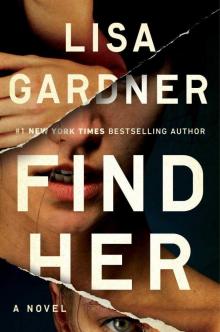 Find Her
Find Her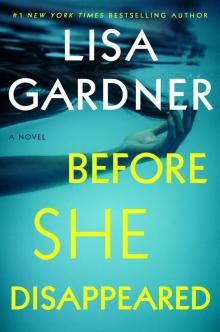 Before She Disappeared
Before She Disappeared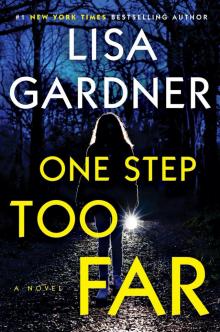 One Step Too Far
One Step Too Far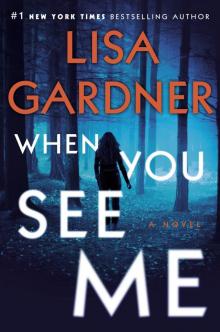 When You See Me
When You See Me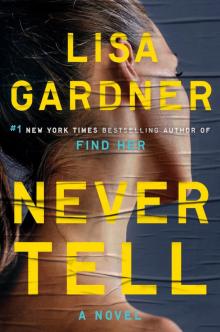 Never Tell
Never Tell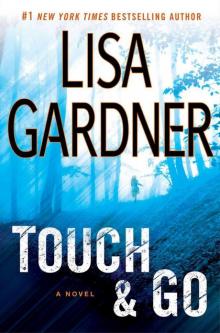 Touch & Go
Touch & Go The Survivors Club
The Survivors Club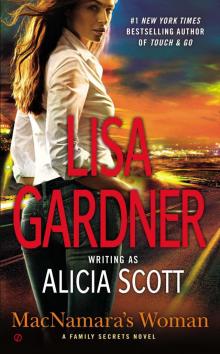 MacNamara's Woman
MacNamara's Woman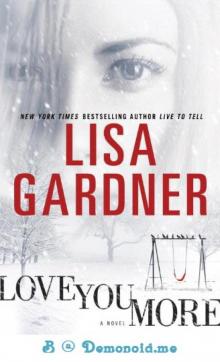 Love You More: A Novel
Love You More: A Novel Gone
Gone The Perfect Husband
The Perfect Husband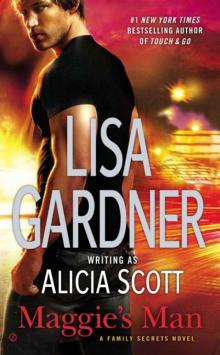 Maggie's Man: A Family Secrets
Maggie's Man: A Family Secrets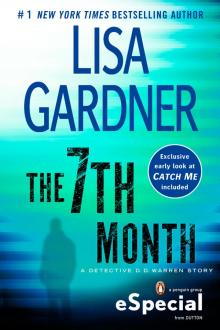 The 7th Month
The 7th Month The Neighbor
The Neighbor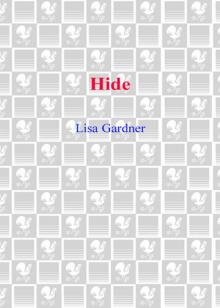 Hide
Hide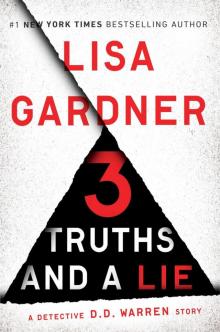 3 Truths and a Lie
3 Truths and a Lie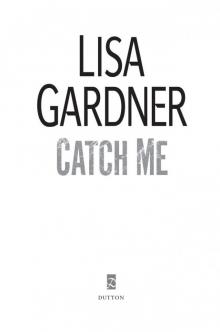 Catch Me
Catch Me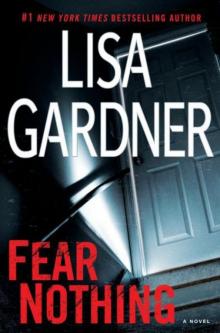 Fear Nothing: A Detective
Fear Nothing: A Detective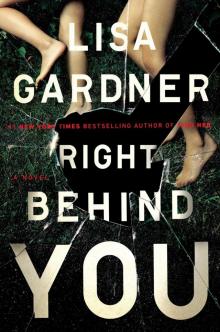 Right Behind You
Right Behind You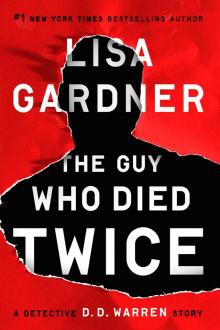 The Guy Who Died Twice
The Guy Who Died Twice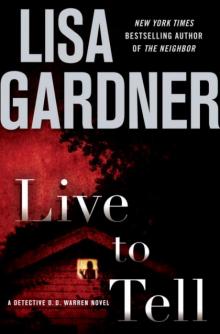 Live to Tell: A Detective D.D. Warren Novel
Live to Tell: A Detective D.D. Warren Novel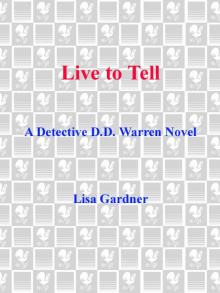 Live to Tell
Live to Tell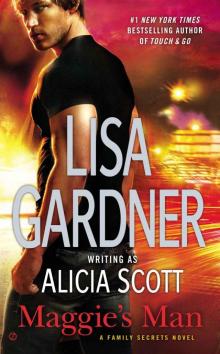 Maggie's Man: A Family Secrets Novel
Maggie's Man: A Family Secrets Novel The Other Daughter
The Other Daughter Alone
Alone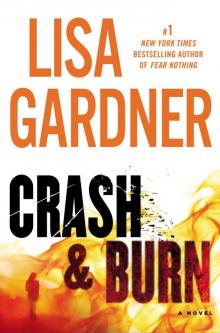 Crash & Burn
Crash & Burn The Detective D. D. Warren Series 5-Book Bundle
The Detective D. D. Warren Series 5-Book Bundle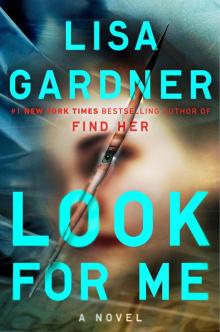 Look for Me
Look for Me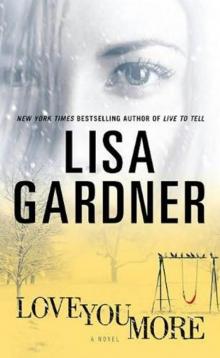 Love You More
Love You More The FBI Profiler Series 6-Book Bundle
The FBI Profiler Series 6-Book Bundle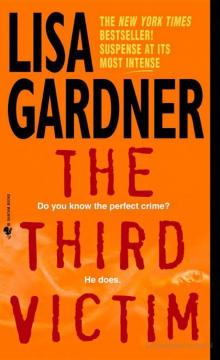 The Third Victim (Quincy / Rainie)
The Third Victim (Quincy / Rainie) Say Goodbye
Say Goodbye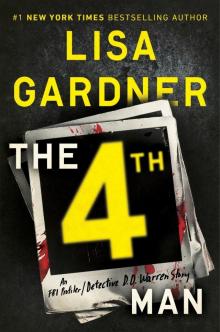 The 4th Man
The 4th Man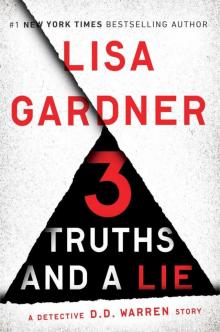 3 Truths and a Lie: A Detective D. D. Warren Story (Kindle Single)
3 Truths and a Lie: A Detective D. D. Warren Story (Kindle Single) Brandon's Bride
Brandon's Bride